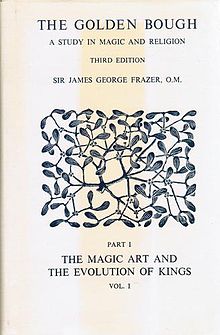Last King Killing February 12, 2016
Author: Beach Combing | in : Contemporary , trackback
Armchair anthropologists (such as this blogger) often thrill over the stories of mutilated and better still murdered kings and the rituals described by Frazer and his heirs in the tropics and reconstructed (ahem imagined) in European history. The king is the land, and as he becomes old and frail he must be sacrificed so life can return in the spirit of a hardy young heir. In some traditions the heir himself will do the sacrificing and then await his turn on the throne of blood. It is hardly surprising that such customs existed in some tribes, but what did confound Beach was one late record from Africa and its rather homely setting. The following is a description in a letter from Audrey Richards (obit 1984), a celebrated British anthropologist: she got her doctorate from the LSE while being supervised by Malinowski! She is describing the death of a Bemba king, in what is today Zambia.
When [the king] is ill and obviously going to die the hereditary councilors come into the hut and the eldest son of the chief (not an heir in a matrilineal society) remains at the door to watch which gives the signal for the strangling of the dying man. In the case of the last chief who had cancer of the liver (a three to six month job usually) he was taken to the small European hospital with the proviso that the hereditary councilors would be allowed to see that he died ‘properly’. I understand that the councilors – about five or six in number – were allowed to come in when the death seemed imminent. I saw in the distance the doctor – serious, bespectacled and of course white-coated – and a nurse in a pretty uniform and a cap. I was not in the room but heard from the mission drivers [!] who had brought the party that councilors thronged round the bed while the Europeans remained aloof. I suppose that coroners in the then Northern Rhodesia had different concepts of their duties than those here.
This letter (recorded in Megan Vaughan’s Divine Kings, Journal of African History 49 (2008), 383-401) probably refers to a death in 1957, just seven years before the independence of Northern Rhodesia, which became, of course, Zambia. That a king of the Bemba should have been strangled in 1957 is not surprising in the least: what is rather disconcerting is that, as AR points out, that it should have happened in a colonial hospital with British doctors standing by. It is also rather jarring to have the royal executioners ferried backwards and forwards between the hospital and the tribal territories by a mission chauffer!
Other late royal sacrifices: drbeachcombing At yahoo DOT com
29 Feb 2016: KMH writes ‘The true noble element in humanity will voluntarily fight and risk death for the sake of country and religion. The true royal element will voluntarily give itself up to an unavoidably premature death as a way to save country and religion. The ritualized death of an old king doesn’t prove much more than the need for a replacement on the throne full of vim, vigor, and vitality. I am reminded of the (humorous) stories where a stranger to a primitive tribe is treated to all the best food and women for a few weeks as their honorary chief, but to his horror he finds out he is to be sacrificed or killed at the end to ensure the tribe’s continuing welfare. I don’t know if such tribes ever actually existed.’


